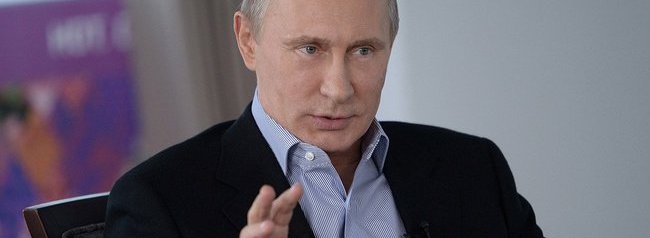| 6 mins read
Vladimir Putin’s approval ratings are declining, as lockdown in Russia continues and coronavirus spreads. During the COVID-19 pandemic, the Russian president has rarely appeared on television, which has raised various questions on Russia’s future in the post-coronavirus world.
Putin has appeared to distance himself from responsibility for the potentially unpopular crisis measures taken by regional authorities. Recently, gas workers in Russia’s Far East staged a mass rally to demand better working conditions and more transparency amid a reported coronavirus outbreak at their gas field in Yakutia. And hundreds of people in southern city of Vladikavkaz protested over what they said were restrictive and unnecessary coronavirus measures.
There were no mass protests in Moscow, although according to the most recent poll 42 percent of Russians think their country is going in the wrong direction regarding the coronavirus crisis. Even Sergei Mironov, the leader of the ‘system opposition’ political party, Just Russia, recently warned the State Duma – the Russian lower chamber of parliament – that the country would soon be facing “hunger protests” if measures were not taken to provide more aid to the population.
The Russian government has launched an online portal for citizens and businesses seeking government assistance, but reportedly refused to provide so-called helicopter money to Russian people. According to Minister of Finance Anton Siluanov, unlike the United States, Russia cannot distribute “helicopter money” since the ruble is not the world’s reserve currency.
The head of the Central Bank Elvira Nabiullina has also expressed concerns that giving money to the Russians would lead to the explosive growth of inflation. The ruble has devaluated by some 15 percent this year, and the country’s economy, heavily dependent on gas and oil exports, is unlikely to recover at least until a new global petrodollar system is established and the oil price stabilizes.
Putin’s approval ratings plummet
Since Russia, like the rest of the world, is facing a huge economic crisis, it is no surprise that the country’s leading politicians’ approval ratings are declining. In March, as authorities acknowledged the spread of coronavirus in Russia, the polling and sociological research organisation Levada-Center found that Putin's approval rating had dropped to 63 per cent. In a new survey published by the same organisation, less than half of respondents – 46 percent – said the Russian government had responded adequately to the crisis.
Also, according to the most recent poll, Vladmir Putin's approval rating has now fallen to 59 percent, which is the lowest figure since he was first elected president in 2000. Notably, more people disapprove of Putin (33 percent) than prime minister Mikhail Mishustin (23 percent) who was recently diagnosed with the coronavirus.
During the COVID-19 pandemic Putin continued to portray himself as a “good tsar”. He did not appear on television as often as he did in the past, and his electorate did not have an opportunity to see him “on the frontlines of the coronavirus pandemic”. Instead, Sergey Sobyanin (a senior member of the ruling United Russia), as well as Mishustin to a certain extent, have become more prominent political figures.
The ‘good tsar’?
However, this does not mean Putin will be overshadowed by others. In the eyes of many Russian voters, they are seen as “boyars” – members of the highest rank of the feudal aristocracies. The belief in a good tsar and bad boyars is well known in Russian history, which is way many Russians see Putin as a “good tsar”, who aims to work in the interest of ordinary people, but is surrounded by “bad boyars”.
In other words, if Russia manages to recover from the coronavirus crisis and global recession relatively soon, Putin and his PR teams will easily find a way to present the Kremlin leader as someone who played the most important role in a battle against COVID-19. On the other hand, if the coronavirus crisis creates enormous economic difficulties for Russian population, many Russians will likely blame “bad boyars” rather than “good tsar” Putin.
At this point, the economic crisis is not yet an existential threat to Putin. Russia, reportedly, has foreign currency reserves of $570 billion, and is relatively self-sufficient. Its geopolitical perspective looks better than it was before the pandemic, as in the long term the United States will likely be preoccupied with its relations with China, which means that Russia may no longer be the main ‘villain’ in the international arena.
On the other hand, since powerful oligarchs are expected to keep dominating Russian economy, it is more than likely than distribution of wealth will be far from fair. The rich Russians will get richer, and the poor will get poorer. That will be the case in most countries, not just in the Russian Federation.
Vladimir Putin will likely keep balancing between various oligarchic groups, as he did before the COVID-19, although it is highly uncertain if he will manage to go through with a plan to stay in power until 2036. Since stability in Russia has been ruined, dissent among the elite may be brewing and a ‘palace coup’ could eventually become reality.
In other words, if economic and political situation becomes unsustainable, he will simply handover a nuclear briefcase to Sobyanin, or someone else, saying “I’m tired, I’m leaving”, just like Boris Yeltsin did on December 31 1999. However, at this point, Russia does not seem to be close to such a scenario.

